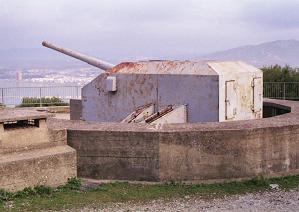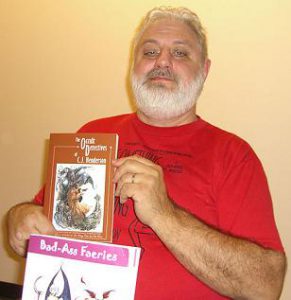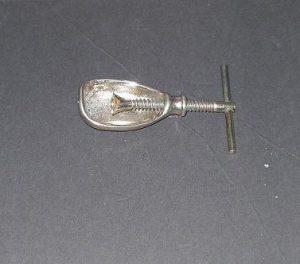This is mark Joseph “young” blog entry #226, on the subject of Versers Adapt.
With permission of Valdron Inc I have now completed publishing my first three novels, Verse Three, Chapter One: The First Multiverser Novel, Old Verses New, and For Better or Verse, in serialized form on the web (those links will take you to the table of contents for each book). Along with each book there was also a series of web log posts looking at the writing process, the decisions and choices that delivered the final product; those posts are indexed with the chapters in the tables of contents pages. Now as I am posting the fourth, Spy Verses, I am again offering a set of “behind the writings” insights. This “behind the writings” look may contain spoilers because it sometimes talks about what I was planning to do later in the book–although it sometimes raises ideas that were never pursued. You might want to read the referenced chapters before reading this look at them. Links below (the section headings) will take you to the specific individual chapters being discussed, and there are (or will soon be) links on those pages to bring you back hopefully to the same point here.
There is also a section of the site, Multiverser Novel Support Pages, in which I have begun to place materials related to the novels beginning with character papers for the major characters, hopefully giving them at different stages as they move through the books.
This is the second mark Joseph “young” web log post covering this book, covering chapters 22 through 42. These were the previous mark Joseph “young” web log posts covering this book:
-
#218: Versers Resume (which provided this kind of insight into the first twenty-one chapters).
History of the series, including the reason it started, the origins of character names and details, and many of the ideas, are in those earlier posts, and won’t be repeated here.

Return to Top
Quick links to discussions in this page:
Chapter 22, Brown 106
Chapter 23, Kondor 102
Chapter 24, Brown 107
Chapter 25, Slade 100
Chapter 26, Brown 108
Chapter 27, Kondor 103
Chapter 28, Brown 109
Chapter 29, Slade 101
Chapter 30, Brown 110
Chapter 31, Slade 102
Chapter 32, Brown 111
Chapter 33, Kondor 104
Chapter 34, Brown 112
Chapter 35, Slade 103
Chapter 36, Brown 113
Chapter 37, Slade 104
Chapter 38, Brown 114
Chapter 39, Kondor 105
Chapter 40, Brown 115
Chapter 41, Slade 105
Chapter 42, Brown 116
Chapter 22, Brown 106
I’ve never had anyone attempt a roof entrance on this scenario. I have had them rappel down to a random floor window and go in that way, but the roof door is usually thought (correctly) to be guarded. Derek takes that entrance, because it is the worst guarded.
The fear and confusion of the guard is because he does not understand the gargoyle-like creature flying at him.
Chapter 23, Kondor 102
Bob wouldn’t know the word, but he raises the eugenics issue: is it morally wrong to purify the gene pool by preventing defective members of the race from reproducing, and if not, what defines who gets to have children?
The notion that the blacks would have material establishing their own genetic superiority developed slowly here. I needed a way to make Joe think that the discrimination against whites in this world was based on something rational, so that he could buy into it however briefly. He needed that jolt, that realization that he was thinking exactly like white slavers and later white racists thought, that there was a real difference between the races which amounted to a biological superiority of one over another.
In the previous novels I had been developing Joe’s “reverse” racism, and had been thinking that this had to be a major arc in his story. This world was going to be a significant step in that–but it suddenly ended quite abruptly. Bob’s argument about the parakeets and sparrows shook Joe’s illusion of science.
I kept wondering what Joe and Bob were going to do about the systemic racism of this world, but ultimately at this moment I have accomplished the part of this world that really mattered: Joe recognizes that he can be just as racist as anyone, and racism can appear to be quite reasonable to those who think they have reasons for it.
“They breed like rabbits” was something that was said about blacks in the early twentieth century. The fact is, rapid breeding rates are normal for humans. For one thing, child mortality rates were always high prior to the dawn of modern medicine, and even (perhaps especially) wealthy and powerful families needed to have several children (and hopefully several sons) to continue the family line; in the modern world, there is a lot less pressure from that, because more children survive to adulthood. For another, in agrarian and herding cultures children are an asset, a cheap labor force that increases production; in urban societies children are a liability, costing money in the short term and the long term, and not generally considered a good financial investment (although that’s a very individual matter). Since blacks lived in poverty, there was a strong tendency for them to have larger families–although this was also true of poor whites, and of specific religious groups (Roman Catholics, conservative Lutherans, conservative Baptists most notably). However, middle and upper middle class whites tended to see burgeoning impoverished black families as proof that blacks could not control their breeding, when that was only part of the problem: more children meant more labor, more income, particularly for rural black families. That’s why the line comes to Joe, and why he doesn’t like it.
Chapter 24, Brown 107
Derek, now in the form of Ferris, suddenly faces an ethical crisis. He is carrying his darts and the drugged arrows he created based on the darts; they are anesthetic, rendering their target unconscious. He developed the arrow drug precisely so that sprites, including himself, would not have to kill people. However, this terrorist will kill him if he gets the chance, and Derek might be giving him the chance by not killing him first.
I realized the problems with the stairs at this point as well. At two and a half feet tall, Ferris is toddler-sized, with the sort of short legs that struggle with stairs. He doesn’t fly, he only glides, and trying to glide down the typical skyscraper stairway with its switchbacks at the landings would be very difficult. In a sense it would be easier to leap down an elevator shaft.
Chapter 25, Slade 100
The human/animal argument returns, as Slade considers whether the way we treat chimpanzees comes under a different category than the way we treat creatures who seem to us “almost human”.
My trick to keep them in the bunker now worked against me, as they were stuck in the bunker until I found a way to get them out; but I started looking for ways to use that in my favor.
Chapter 26, Brown 108
My parents took me to the Statue of Liberty and the Empire State Building; the latter had elevators much of the distance, but both involved a lot of stairs. I’m not sure I appreciated the view, but I remembered the climb.
The lone gunman is the first encounter; it is not necessary that the main character actually confront him, and in this case I chose for this to be more a tension builder than a confrontation.
Apart from the fall into the pit at the end of the third novel, this is the first time Derek has ever used Ferris as more than a way of getting between Derek and Morach. Thus he never had shoes. I never go barefoot but in the shower, at the poolside, and in bed; I don’t like the soles of my feet on anything hot, cold, sharp, or rough. Thus I feel the steps when Ferris lands on them.
The office worker is also a planned encounter. There are later encounters when terrorists have hostages and when they pretend to be hostages, so it’s important that the player not think all encounters are necessarily terrorists. This plays with those expectations.
On the read-through edit I realized that Derek could use his scriff sense to point to wherever Calloway had his equipment, and that he would think of that, so I added it.
Chapter 27, Kondor 103
One of the difficult issues in this story is why the war is still happening. The blacks have such military superiority that they could easily overwhelm the whites; the whites only have numerical superiority, as far as I can see. I needed the war to continue, to be continuing for generations, without any real hope of either side winning, while maintaining the technological superiority of the blacks.
I took a new tack with the characters. Since Bob Slade was trapped as an unwelcome guest among the blacks, and he was likely to be the best hand-to-hand fighter (not to mention good with the blaster) that they’d ever seen, I could use his superiority to undermine their confidence, cause them to believe that the whites might be more human than supposed.
Chapter 28, Brown 109
One would expect that something that glows would become an obvious target, but one of the tricks defense experts learned in World War II was that a plane against a daylight sky was a dark blip, but if you put forward-facing spotlights on it it became part of the brightness of the sky. Thus a logical reason for sprites to glow is it makes them less visible to anything looking up at the sky. It now also occurred to me that shadows are one of the most difficult things to hide when stalking, and the light emanating from a sprite would reduce the shadow some.
In one of my favorite movies, The Last Starfighter, there is a moment when the navigator, Grigg, is explaining the problem to the starfighter, Alex. Alex notes that it is a knotty problem, and Grigg says, “I’ll have it all figured out by the time we reach the frontier.” At that moment an alarm sounds, and Alex asks, “What’s that?” to which the reply is, “The frontier.” I think that kind of scene is what I was thinking here, as Morach is trying to figure out what he’s going to do when he gets to the terrorists, so he’s taking his time getting to the terrorists, but he still doesn’t think of anything.
Derek learned some aerobatics as a young sprite; before that he saw Lauren adapt her acrobatics to her combat techniques. I always tried to avoid making the characters too much alike, but at this point it made sense for him to emulate her, adapting his aerobatics to combat.
One of the downsides of using published worlds in published novels is that I give away secrets, tricks that a future player might exploit. One of the advantages of my characters is that they are unusual enough that a lot of their solutions to problems aren’t really useful to most players. It would require a remarkable set of coincidences for a player to be able to copy Derek’s means of clearing the back door.
Chapter 29, Slade 101
Joe easily slips into the mode of making his hosts uncomfortable with their resident ghost. He focuses on how to get them to recognize just how skilled a killer Bob is.
Bob is adapting to his new identity. He was becoming a warrior of Odin in the first book; in the third (his second) he married the girl, and now he is also a husband. He asks himself how those two roles mesh, and starts looking for answers that make both work better.
The reluctance of the soldier to touch deadphones that had been worn by a white man is one of the little bits that show their deep prejudice.
I liked taking the phrase “he was not safe” and inverting it: it wasn’t that he was in danger, but that he was a danger to them.
I also used that to segue to the possibility of doing a magical SEP (the type of invisibility known as “somebody else’s problem”, the reason nobody can describe the custodian who was mopping the floor or the bum on the park bench). Lauren does the trick psionically, but it’s a useful trick and something Bob and Shella might be able to do by magic.
Chapter 30, Brown 110
I don’t usually talk about Derek’s high-tech gear, but since I introduced a trinary computer connection in the second novel and fiber optics are known to be faster than electrical connections, I thought I’d toss in a bit of jargon about what the component did that would be right but confusing to someone who knew enough to know that they weren’t using trinary systems.
I’ve always thought that working in a field where there was some information that only some people were permitted to know would be frustrating both for those who knew and for those who did not, and I reflect that in this interaction.
The elevator trick was off the cuff, something I thought would have potential for the story. I didn’t know whether I would use it again, but I wanted it to be there in case I did.
I thought Uballa sounded like an African name, and so although I didn’t say the bomb expert was black I at least created the impression he might be. My mind puts the accent on the second syllable. I picture Jim as played by a young Steven Segal.
When I reached Brown 117 on the first read-through edit, I realized that I had not previously mentioned where he put the chain, and it needed to be accessible. I also realized that I didn’t remember mentioning any of his weapons in this scene, so I came back and added them, and also added mention that he packed his electronics gear.
Chapter 31, Slade 102
In the back of my mind I was at this point exploring the possibility that the whites had magic they could use against the blacks; I never pursued that, but it gave me some basis for a low but functional magic bias.
I noticed that Shella always called Slade “M’lord”; it was automatic, that when I wrote her dialogue, that’s what she called him. It occurred to me that it was the kind of thing that Bob would find both pleasing and embarrassing, and wouldn’t exactly want to object but would want his wife to be comfortable calling him something else. It struck me just about here.
It also occurred to me that Bob and Shella spent quite a bit of time in the vampire future world with Lauren and Derek, and Shella would have spent some of that time with Lauren and Bethany, and some of it with Merlin, all of which was, as it were, “off camera”. Thus I could fill in blanks of things Shella learned while there (a very high magic world) for her to know now.
Having Bob experiment with what magic works has the advantage of informing readers not familiar with the earlier books concerning what magic he has used before; the same goes for the discussion about magic with Shella.
The experiment with the SEP invisibility gave me the opportunity to create a bit of adventure for Bob and Shella; I hadn’t thought through what was going to happen, but I figured it would lead to something interesting if they could wander the halls unnoticed.
Chapter 32, Brown 111
The bombs are part of the original scenario, and finding one from the safe side is the next encounter. The stickers are also part of that.
Left or Right was the title of the Game Ideas Unlimited article in which I discussed this method of designing a scenario–in which the encounters are sequenced and the referee places them in appropriate places as the floor plan is created in response to character choices. Derek’s reaction is of course correct in reality: everything hinges on which direction he goes, but he has no data on which to base a decision. The scenario, though, is based on movie logic: the way he chooses is of no consequence, because wherever he goes he will walk into the next encounter there.
I vaguely remember that that trip to the Empire State Building was connected to some trip to see some specialist doctor who had an office in the building. It had not previously occurred to me that doctors might have offices in high rise buildings–growing up in the suburbs, my doctors all had private offices in small buildings. Most other high rise buildings I had been in had been hotels or buildings housing a single company, e.g., the Blue Cross/Blue Shield office building in Wilmington, Delaware. This idea of individual separate offices within the larger building still strikes me as unusual, but of course it’s normal.
“Three and then go” is of course from the Lethal Weapon movies, where they always stop and ask whether it’s “on three, or three and then go”.
Chapter 33, Kondor 104
Again I note differences between my characters, as despite his scientific and technological training Joe does not really carry a toolkit.
At some point I dropped a new player into a variant modern world, and then brought in several other player characters. It was the first player’s home town, Columbus, Ohio, but within the first few minutes of play I’d realized that what I wanted to do was create a 1950s B Movie world, in which all the monsters were real because of radioactive and chemical waste. Some of the player characters became very involved in trying to organize a “clean up the world” process. The first player, though, took a different tack: this is not our world, why are we interfering? Joe is now debating that same issue–but it is one he already addressed, and he remembers his thoughts on that subject now.
Joe works from his early impressions of Bob, a guy who believes in Norse gods and thinks he’s been chosen for Ragnorak, who thinks he can talk to the wind and have it hear him and cooperate; from this Joe thinks Bob is not very bright. Thus when Bob demonstrates something intelligent, Joe admires it but downplays its importance. It probably contributes to this that Bob does not think himself very bright either–“only an auto mechanic” is still part of his self-identity.
Chapter 34, Brown 112
Derek’s spritish upbringing comes into play here, as he realizes he is responsible now for killing three terrorists. At the back door he might have killed one–but it was more accidental, as the man choked on the arrow that otherwise would have rendered him unconscious. Here it is clear that three men have been shot dead, intentionally, by his team, and that makes him a killer here.
He also recalls the slasher summer camp scenario, and tries to explain to himself how he is different from the killer there.
I created the smiley face stickers as markers for the bomb when I wrote the game scenario, and used it here.
The reference to fighting demons is specifically to the Vampire Future world at the end of the third novel.
Chapter 35, Slade 103
Several factors go into learning a new skill. One of them is how many skills you already have (technically how high they are bias-wise) in that area, and thus Shella has an advantage over Bob in learning this one. Another is that having an example of how it’s done gives a bonus, and thus Bob watches Shella and learns a bit better how it’s done. Thus they both successfully learn the skill.
The trick of having Shella drop the invisibility and address the group was inspired about this moment, as was the line about being called “ghosts”.
Chapter 36, Brown 113
When I designed the world, I suggested many things that could be on various floors of the building; one of them was a shopping mall, which could easily fill two stories. I needed variety in my floors here in the game world, but couldn’t envision Derek going downstairs very far, so I decided to put the mall about twenty-five floors above the street.
I am still running the encounters by the book. This one is an office worker fleeing from terrorists.
I almost gave Derek the smiley stickers at the first encounter, but at that point he had no possible reason to take them. Now he knows their significance, so having them is to his advantage.
Chapter 37, Slade 104
This chapter covers a lot of Slade’s internal considerations, and it reflects a lot of the character of the character. It includes the fun side near the beginning, and then he gets into some serious issues. It is really about Slade himself more than anything else.
I, too, was wondering how Joe, Bob, and Shella could change the world. They continue struggling with that question for a while.
Chapter 38, Brown 114
The world description on which this is based calls for an encounter in which the characters have to pass over or under some kind of bridge or balcony where they are exposed to view. This was my way of including that here, and I often include it in a mall-within-the-building scenario. I think most of us have been on the upper level of a mall that has some kind of overlook to the lower level, so it’s a familiar enough setting–and fountains are also fairly common in malls.
Chapter 39, Kondor 105
I knew it was time to move my versers out of Mlambo’s bunker, but did not know where they were going or what would happen next. I considered that they might be returning here before they went anywhere else, so I set that up as a possibility.
Bob’s comment about not needing luck makes an important point–that “luck” is what you need when you can’t count on skill–but it’s also true that he has called for a bit of luck sometimes as well.
Chapter 40, Brown 115
The scenario in which terrorists use hostages as shields also comes from the book. I decided that a hostage wounded by the rescuers would add tension, but it had to be Jim, not Derek, responsible for it.
It also underscores their problem: they aren’t here to rescue hostages, so this is an incidental rescue.
Chapter 41, Slade 105
By letting Bob describe Joe adjusting his eye, I didn’t have to decide to what degree ultraviolet light would be useful in the fog. I only suggested that it was possible.
I also got to play a bit with Joe’s naturalism: Bob and Shella perform their SEP spell (“Somebody Else’s Problem” invisibility) and immediately they are unnoticed by the patrol, but Joe does not know why.
The “ghost” label was something of an abrupt inspiration when I brought the whites into the compound and needed a word that would be descriptive and potentially offensive for white people which was not used in our world. I spent quite a while trying to find a way to “demonize” the blacks, and decided that “shade” was an excellent counterpart. It is more than merely white ghosts and black shades. “Ghost” suggests something insubstantial; “shade” is closer to something inhumanly evil or demonic. It gave metaphoric substance to my races.
Chapter 42, Brown 116
One of the encounters in the scenario is that a small team is dispatched to hunt the intruder. The problem I had here was determining how to make that known to the reader without breaking perspective. Perspective is a type of a rule in literature which can best be described as who is telling whose story. Throughout these novels I have maintained what is called an internal character perspective, each chapter told from the viewpoint of the principle character. It shifts a bit over the course of the telling, sometimes approaching (but not reaching) first person, getting to the specific thoughts of the character, usually third person but still internal, focusing on what the character himself perceives and knows, and omitting anything he does not see or cannot know. In effect, the reader travels with Derek, as Derek’s companion and confidante, knowing and seeing what Derek knows and sees. I do that in part because it is more like the game, in that if you were playing Derek you would not know what Derek does not know. It means, though, that I cannot tell you what Jim thinks or feels except as Derek perceives it, and I cannot tell you what is happening somewhere else in the building or beyond, unless I either break perspective or change perspective. Breaking perspective is jarring for the reader, as if someone with the same voice suddenly interrupted the speaker. Authors change perspective all the time, but it has to be done smoothly and the new perspective has to be maintained long enough to establish it before changing it again. Dramatists and television writers are generally limited to external perspective–we know nothing of character thoughts and feelings but what they express for us to observe (although soliloquies and voice-overs were invented to provide a route to internal perspective). Modern writers often use what is called “divine perspective”, allowing us to know what all characters see, think, and feel, and often what is hidden from them, but this has its own problems particularly with keeping it clear to the reader whose feelings and thoughts are presently described, and if you stay with one character long enough the reader is shocked by an abrupt change to another even if you thought you had established divine perspective. All of this is to say that my solution here was to have Jim tell Derek that he heard on the enemy radio that they were dispatching a team, and thus I was able to inform the reader of a fact that could not otherwise have been mentioned without changing the perspective to one I never otherwise used in any of the novels (viewing events not within the knowledge of a central character).
The issue of whether the enemy could have identified which way Derek’s team was moving was never resolved, but it was more important to show that he was thinking about how to lead the team in ways most people wouldn’t.
This has been the second behind the writings look at Spy Verses. If there is interest and continued support from readers we will continue to publish this novel and the behind the writings posts, and prepare the fifth novel to follow it.









